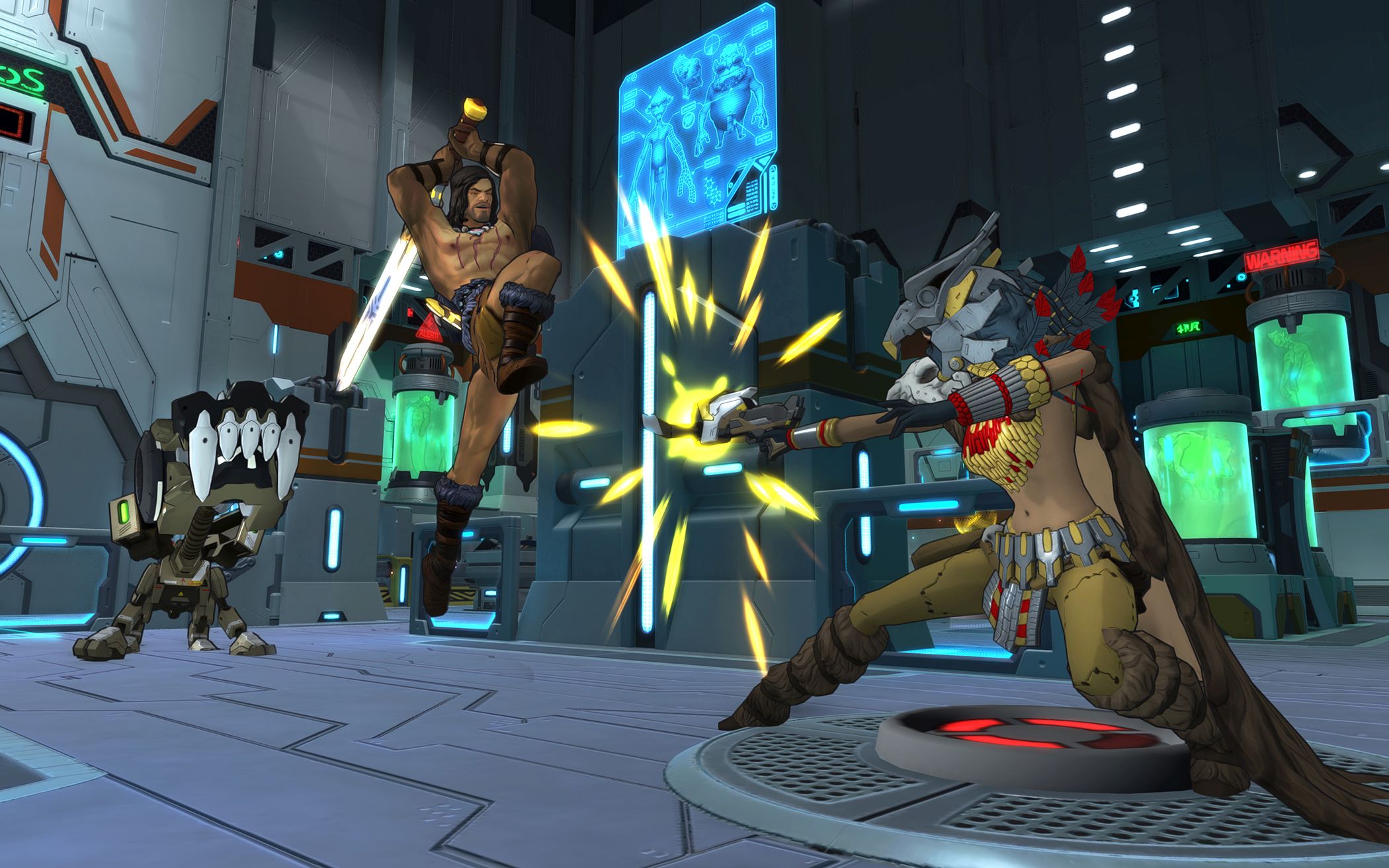
A new way to play in the MOBA space isn’t a unique claim—it happens a lot, with pretenders to the throne coming along at every opportunity. But these other games don’t really mix things up in any real way—not like Atlas Reactor, the new MOBA/strategy/RTS hybrid from Trion Worlds.
See, Atlas Reactor doesn’t care about your actions-per-minute (APM). It doesn’t care about your quick clicks and your ability to do things in a mechanical, automated, hardly-thinking fashion. Atlas Reactor laughs in the face of your high APM claims, because Atlas Reactor… well, doesn’t bother with that stuff.
Instead, Atlas Reactor employs a system of simultaneous turn-taking for its PvP action. Put simply, everyone decides on their moves in a 20-second window, and once confirmed everyone makes their actions (dodges, attacks, movements and so on) at the same time. This is no longer about an automated plan of action decided on before a match has even begun: Atlas Reactor is about acting, reacting and anticipating.
The layers of strategy added to your traditional MOBA/strategy fare with this one change are many. Atlas Reactor offers a keen mix of the traditional turn-based style with elements of the tactical, strategic thinking necessary in a MOBA (or, of course, an RTS). In essence, it encourages you to read the mind of your opponent, attempting to think one, two, three steps ahead of them in the quest for battlefield superiority.
It’s not just a case of planning your turns at the same time as others in Atlas Reactor, of course—who you choose to take into the 4v4 battles has as huge an impact as you would expect. An array of Freelancers take to the many in-game maps, each with their own strengths, weaknesses, abilities and powers.
Maybe you’d want to take a support Freelancer into the fray, like ‘the digital sorceress’, Aurora. Impressive AOE powers come in a variety of flavours with her, attacking enemies with the likes of the Ion Cloud, paralysing them with the Paralazer, or of course healing your squadmates and self as and when needed.
If you want to take things to the frontlines with a cunningly titled Frontline character. Rampart, say—the walking wall able to soak up damage and defend its teammates, rushing to the front with a giant shield and impaling enemies on a whim. Or maybe a Firepower Freelancer like Pup, the war dog. Or Nix, the sniper. Maybe another Support character like Quark. Really, there’s a lot of choice and a lot of variation—learning on top of learning, leading to a deep and thoroughly rewarding strategic play time.
The biggest gaming news, reviews and hardware deals
Keep up to date with the most important stories and the best deals, as picked by the PC Gamer team.
Rather than just a series of one-off encounters, Atlas Reactor tells an ongoing story in the shape of seasons, filling players in with an ever-expanding narrative around the city of Atlas and the Freelancers aiming to get themselves a piece of the power of its titular reactor. Once players are at Account Level 10, they are able to take part in chapter contracts—finish one, receive your rewards and move on to the next chapter, until the season is complete.

As you progress through chapters—and the season—the story of Atlas is revealed in more detail, while new challenges and contracts are offered up. Finish the contracts to progress the story, and finish the challenges – which are difficult to complete—for significant rewards. It all comes together to compel the player to put more time and effort into Atlas Reactor; as well as giving them more back for their valuable investment of both.
So if you’re looking for something different to DOTA; an alternative to Overwatch; a similar-yet-unique take on the Banner Saga; or even something to take up your usual Hearthstone time, Atlas Reactor is worth a look. You’ll need to adjust your approach and modify your way of thinking, but once it clicks, this is a rewarding and exciting experience unlike any other.
A lot can happen when 20 seconds are up. What will you do with your time?

